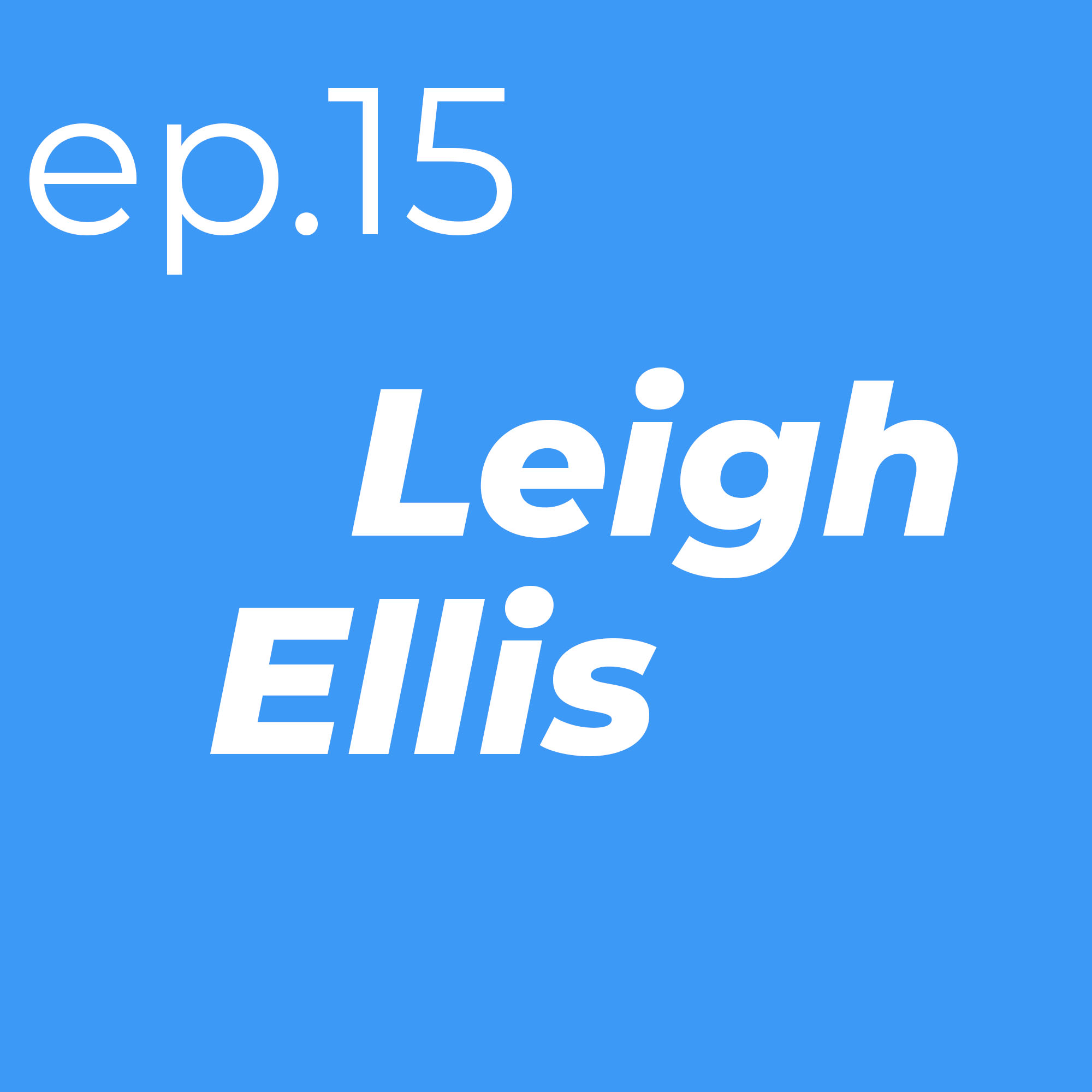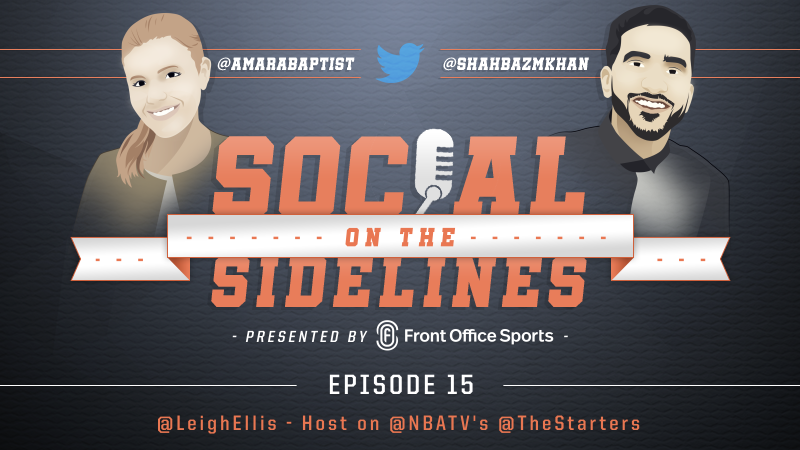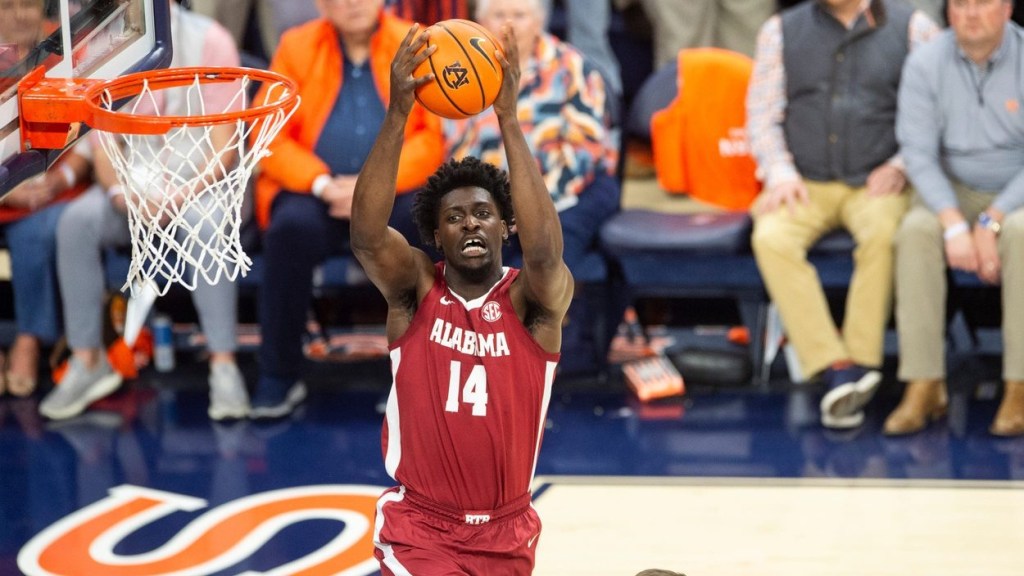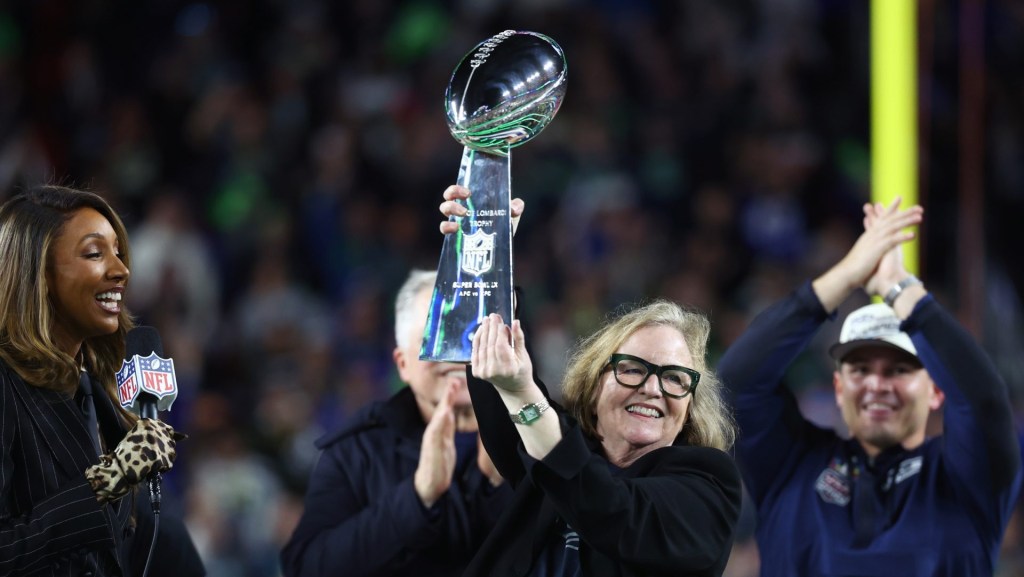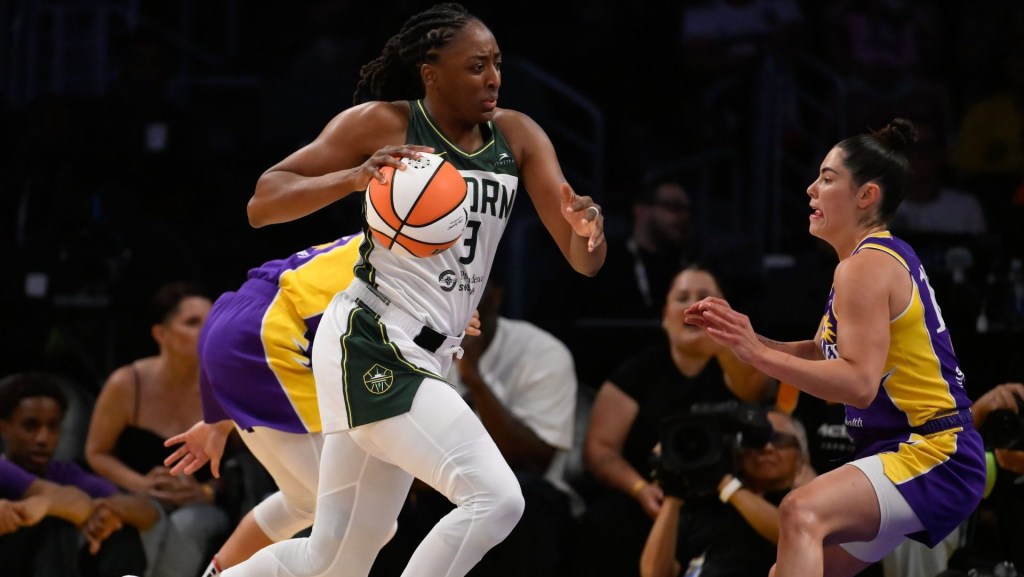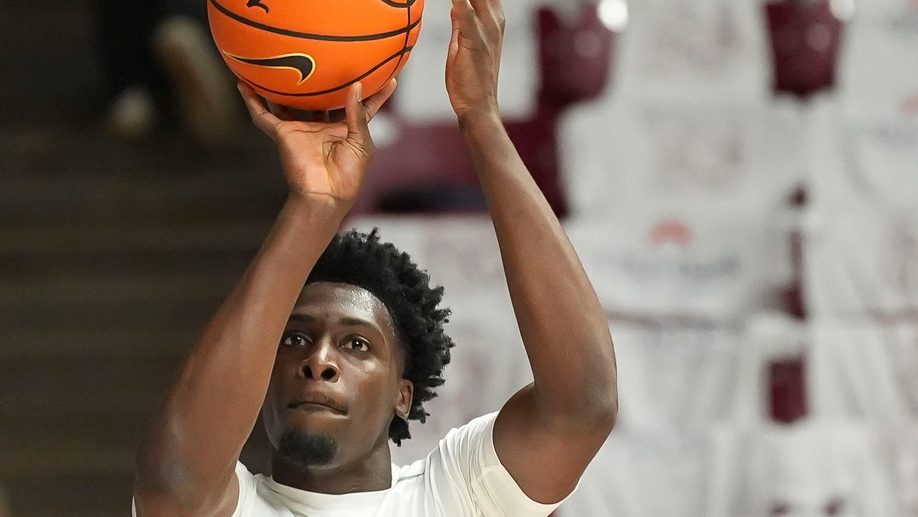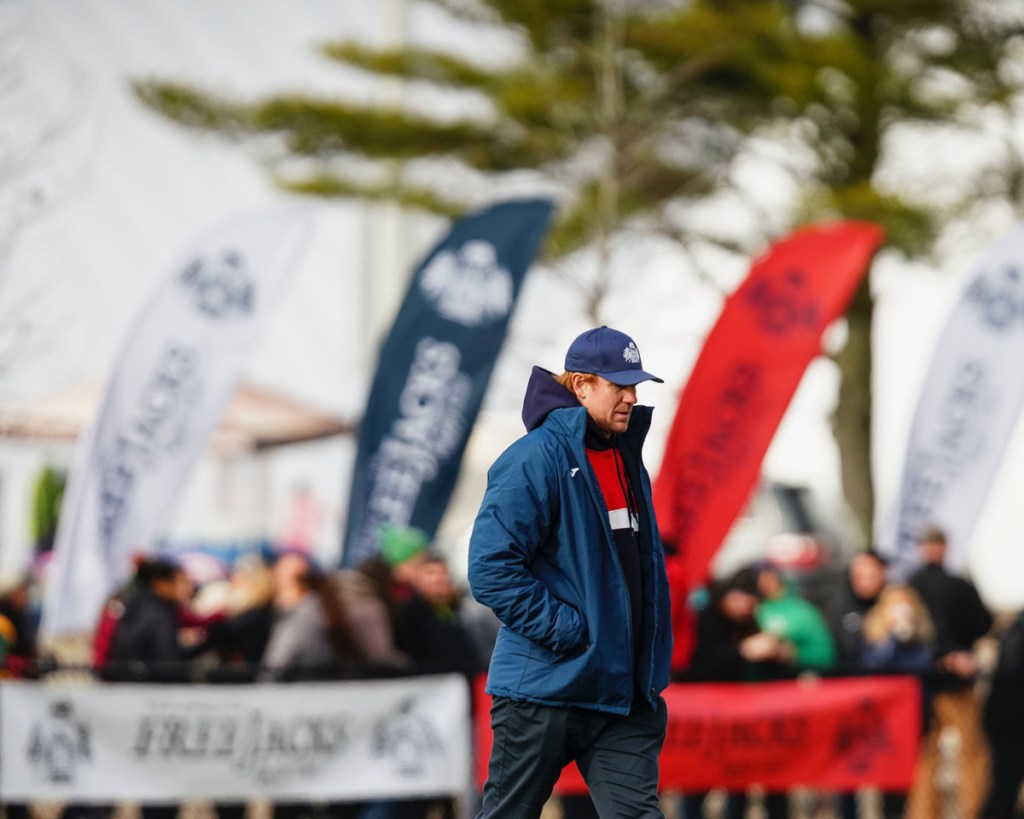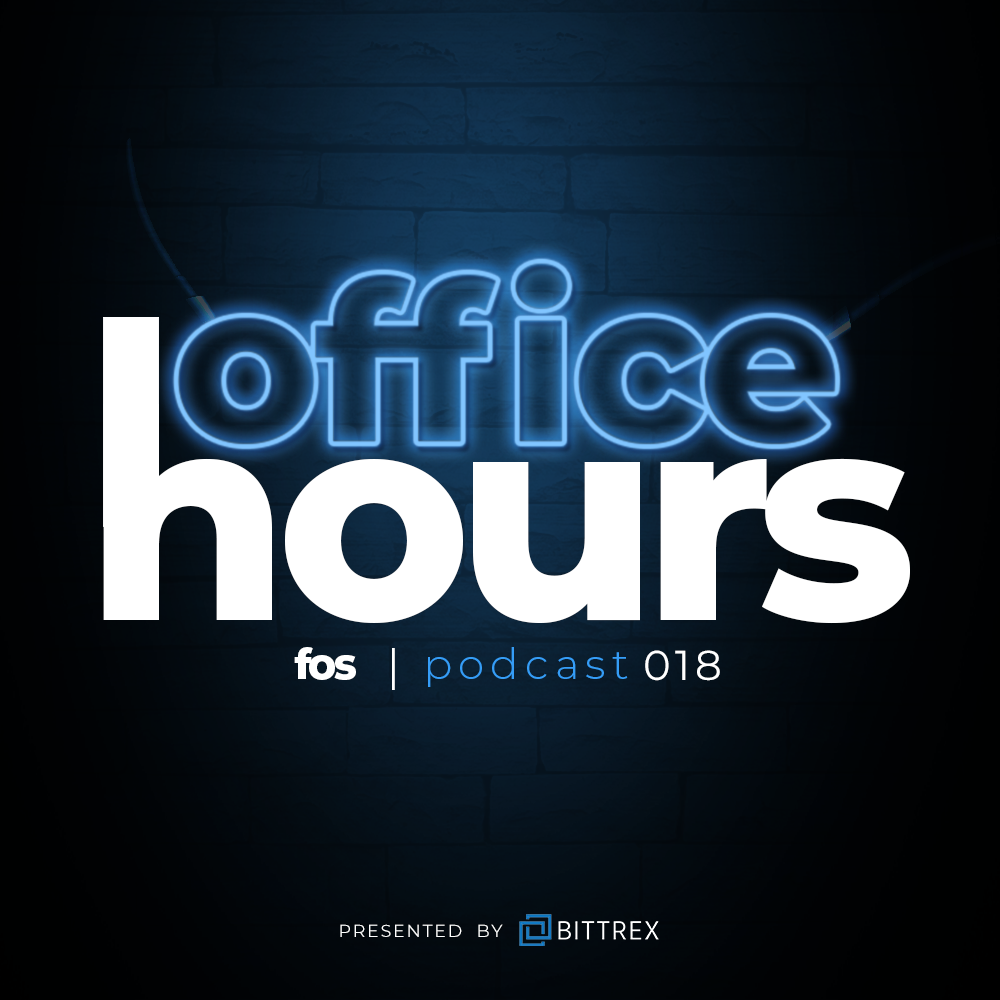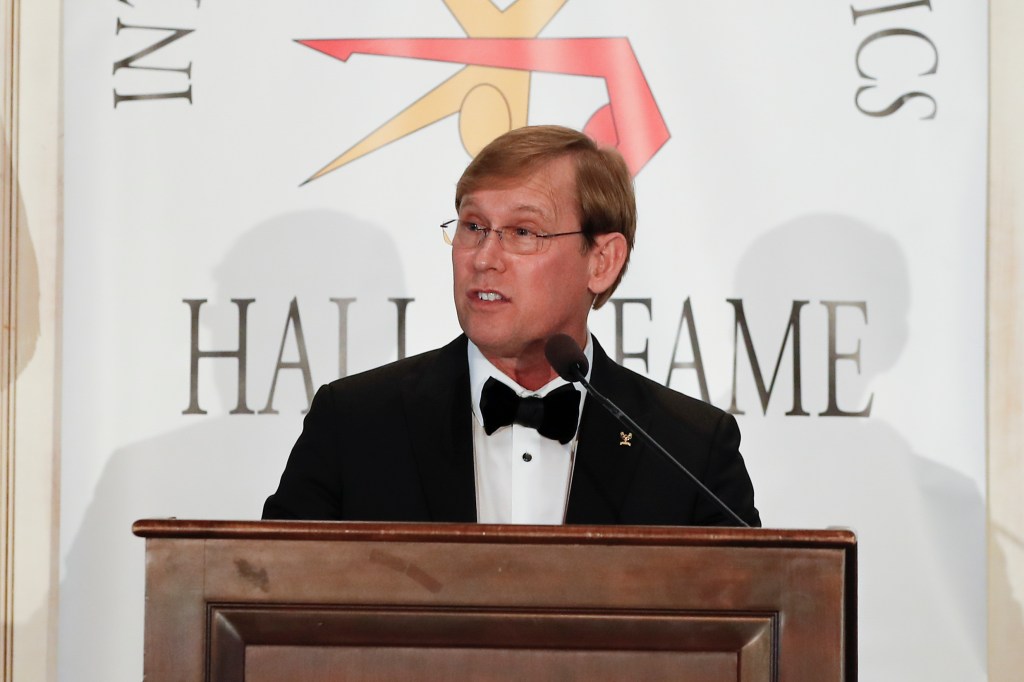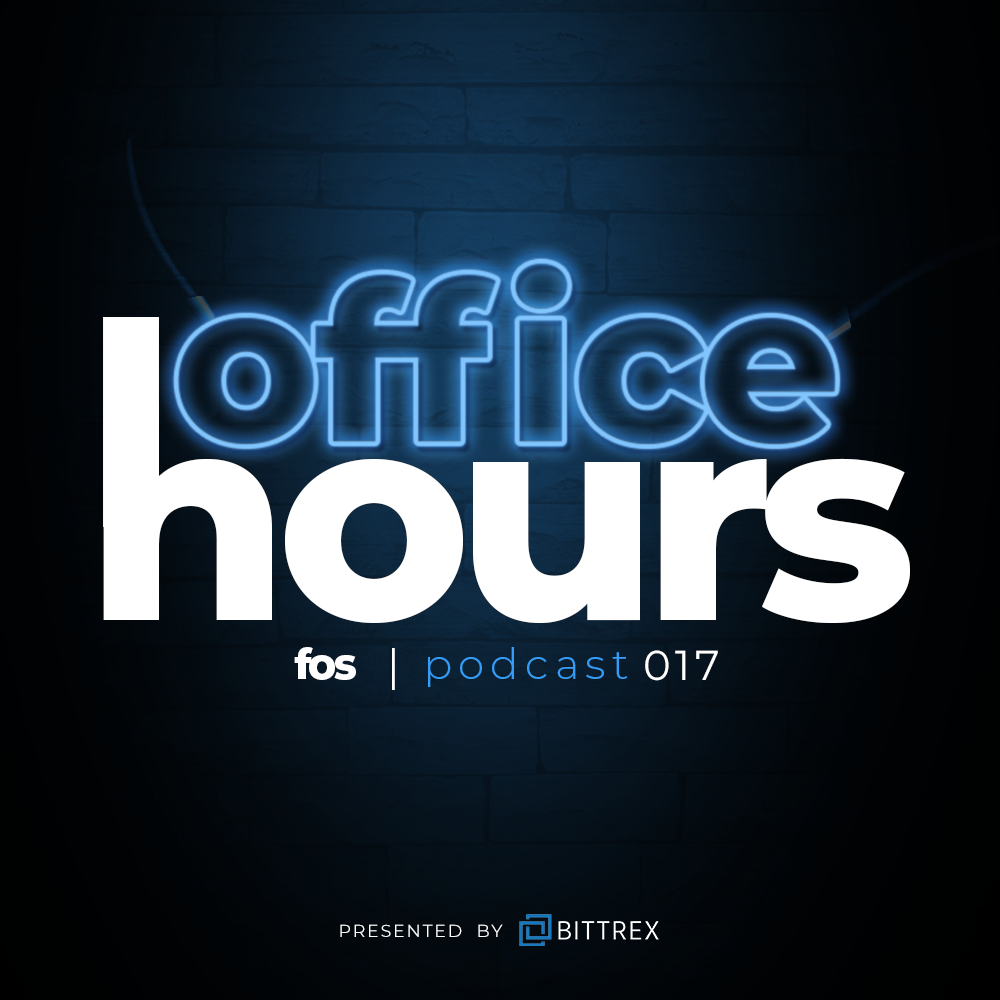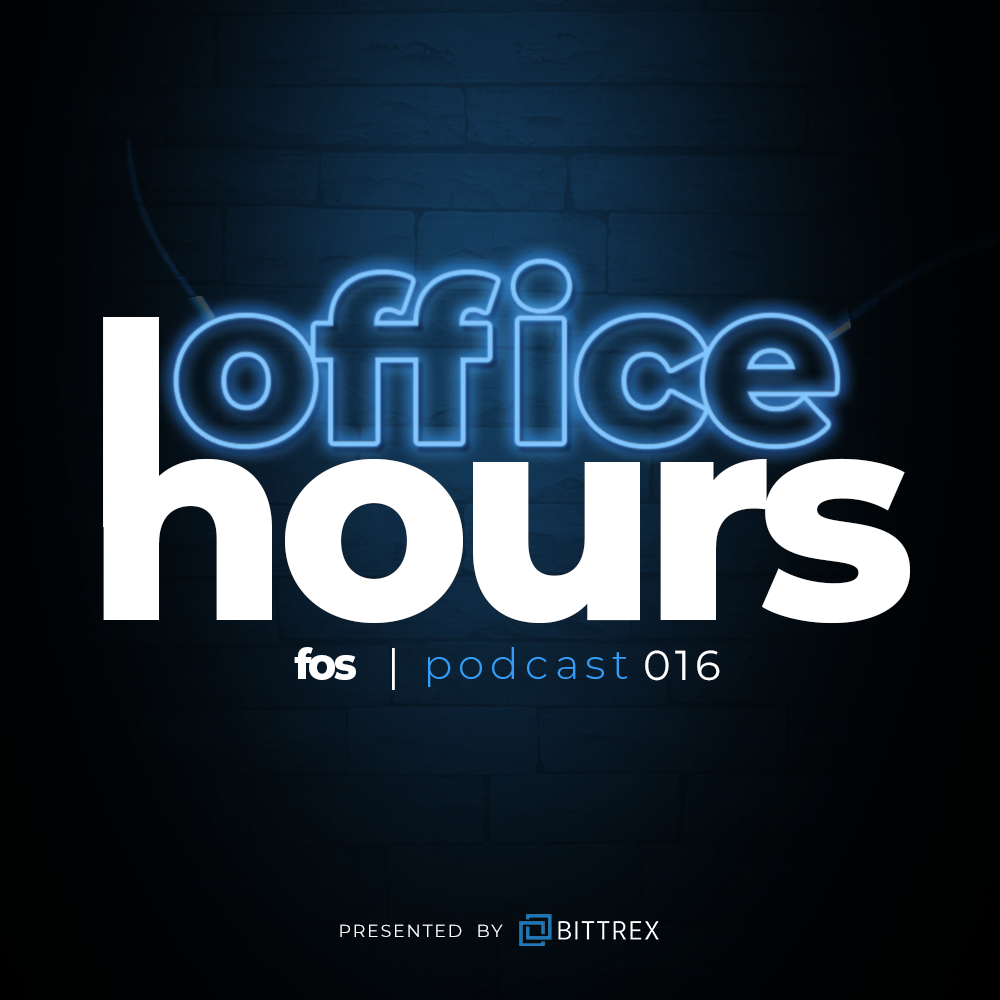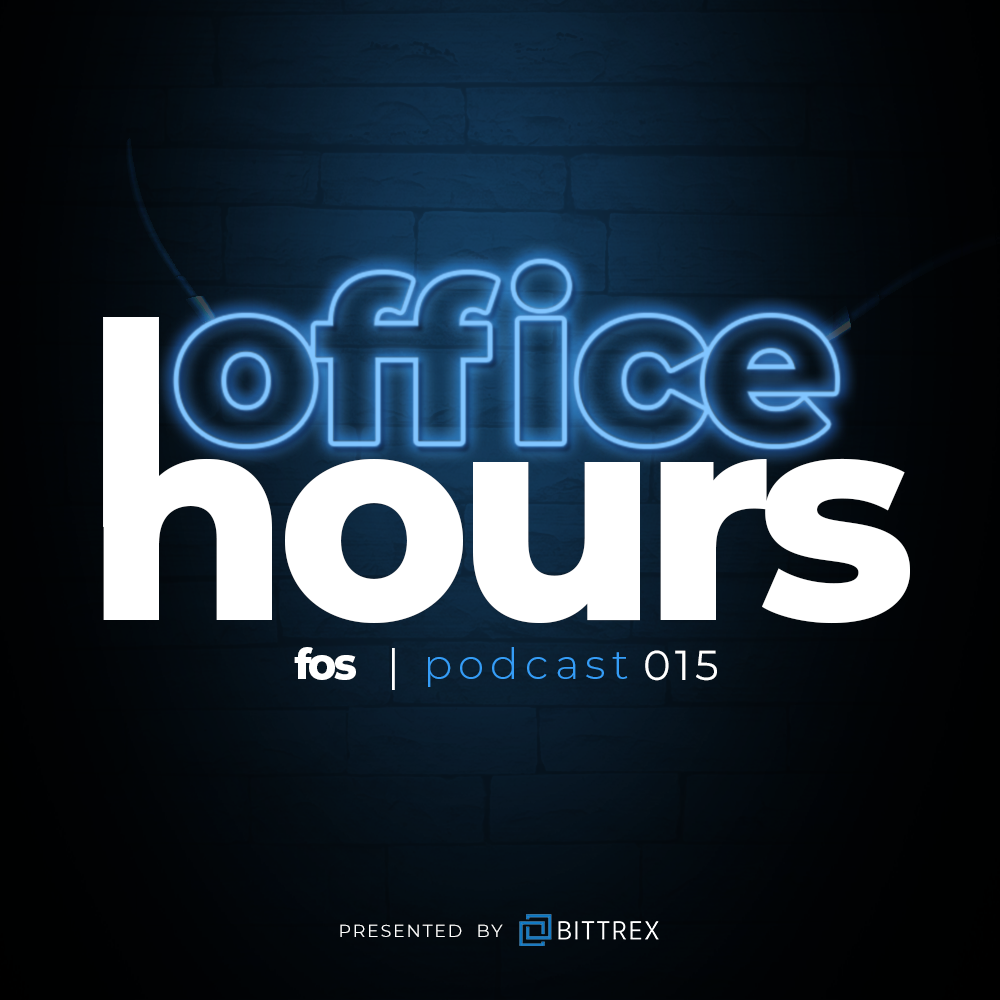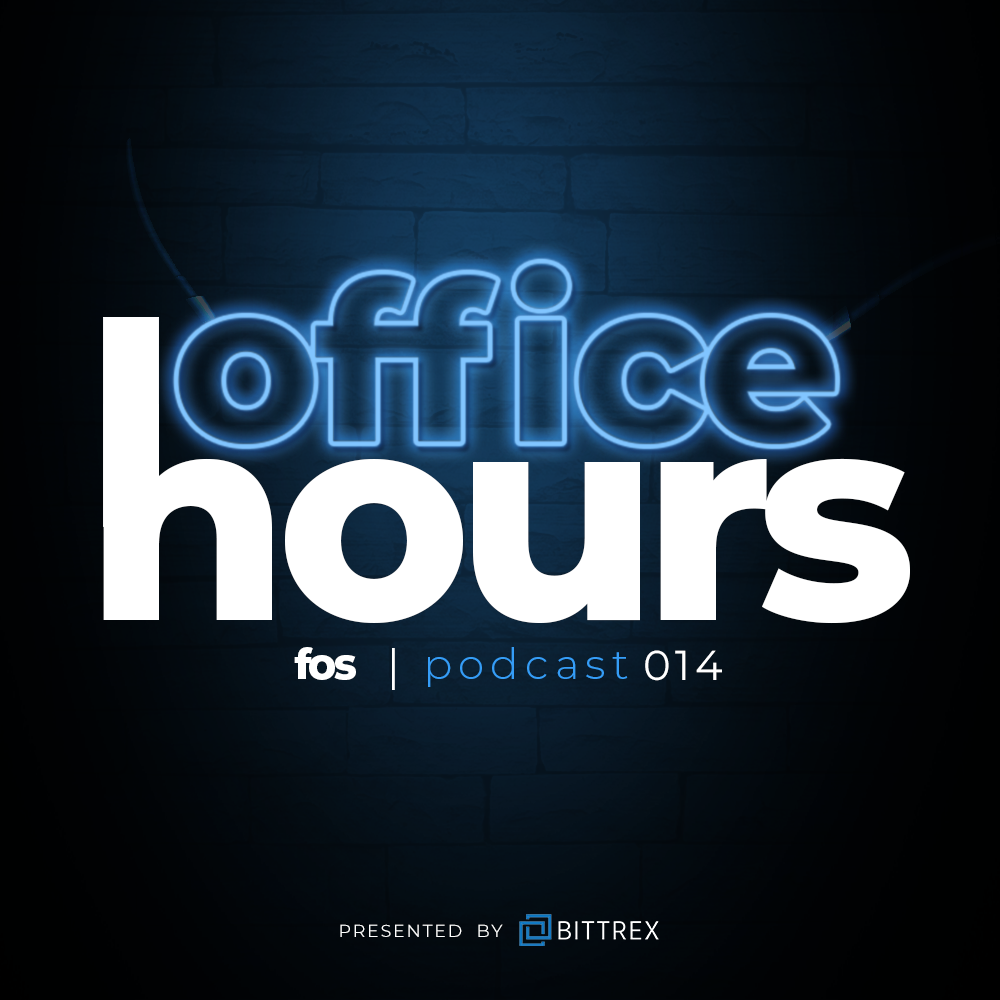Subscribe: iTunes | SoundCloud
Leigh Ellis grew a love affair for the NBA in one of the more unlikely places in the world. The year was 1987, Ellis was living in Australia and without cable TV or internet, trying to follow a league in a place that was 15 hours behind where he lived could be difficult at times.
While he was aware of the Jordan’s and the Bird’s of the era, with limited coverage in Austrailia, he did not see much of the league. That is until his brother found a VHS copy of the 1987 NBA All-Star game and bought it for him. He was hooked.
After moving to Toronto from London, Ellis was able to attend an NBA game for the first time ever. Working odd jobs to make ends meet, Ellis knew that he wanted to somehow find a way to work as an NBA media member. So, he ended up going to a sports media journalism school in Toronto, then applied for a job at The Score, and eventually found his way to The Starters.
A journey years in the making, Ellis’ journey is an incredible example of what happens when you do everything in your power to make your dream come true.
Edited highlights appear below:
On How He Got His Start (9:06)
“I worked in banks and I’d done odd jobs here and there, but I didn’t really have a career and I just turned 31. I’d always been passionate about basketball and sports media and I thought I have to do something in that field if I was going to be happy with my life. Fortunately, at that time, a sports media journalism school opened in Toronto.”
LISTEN MORE: The Browns’ Allie Raymond: ‘You have to engage your fan base even when there’s a lot of losing’
“I went to the school and from there I applied for an internship at The Score Television Network, a Canadian all-sports TV channel. It no longer exists in the format that it was at the time, but it gave me an opportunity to just get involved in the sports media field.”
On Joining The Starters (aka The Basketball Jones at that time) (14:09)
“The Basketball Jones joined The Score and started doing their podcast daily. I thought it was amazing. It was exactly what I wanted to do, but I didn’t really know how to sort of just walk up to them and say, ‘Hey, can I work for you guys?’ What happened was I did make myself known to them by sort of always accidentally walking by their office.”
“Occasionally, they needed an extra pair of hands when they went on a shoot. I started to establish a little bit of a relationship with them. My big break came when the NBA had the lockout in 2011 because, at the time, they needed to produce a basketball show but there was obviously no basketball. They pitched an idea to the bosses at The Score to do a podcast tour around America.”
LISTEN MORE: Rob Perez’s Journey from Ticketing Entrepreneur to NBA Personality
“The bosses loved the idea and the Basketball Jones said, ‘Hey, we need an extra pair of hands on this trip.’ I was like, ‘Yeah, absolutely!’ before I had even cleared it with my wife who was three months pregnant at that time.”
“I went home and I said to my wife, ‘I’ve got this opportunity for work that means I’m going to be away for the next five weeks.’ There was a little pause, but then she said, ‘You know what, you have to go, you have to take this chance and see where it might lead because you just never know.’ She was incredibly supportive.”
Social on the Sidelines is Presented to You By:
On Putting Himself in a Place to Succeed (16:21)
“When I sort trace back to the initial steps, if I hadn’t been able to do those other things like shoot a video, edit it, and produce it and again, you don’t have to be the best data in the world, you just have to be competent at it. That was my foot in the door, which then led to me being an on air analyst for the show which is really what my dream job was when I first decided that I was going to chase a career in sports media.”
[mc4wp_form id=”8260″]
“Having those other skills, as I mentioned earlier, was my opportunity to at least show somebody what I could do and if people can see that you are able to shoot a video, or produce it, or to do some graphics, or whatever it is, they’re more likely then to give you another opportunity at something that you would like to be doing as far as voicing an opinion or being some sort of an analyst.”
On Being a Fan-First Show (27:08)
“We really encourage that sort of stuff (fans sharing things) because even though it is six of us, we just simply can’t see everything ourselves. Fans see that they can participate in the show, get recognition in the show, and we like to basically say to them that this show is not just about us telling people what they want to see.”
“Our show is made by us, but it certainly takes a lot of input from fans. We want fans to participate, not just to watch and to say, ‘Hey, great show.’ we want them to actually contribute to the show. That just makes it a better show because again, it comes back to the reliability.”
